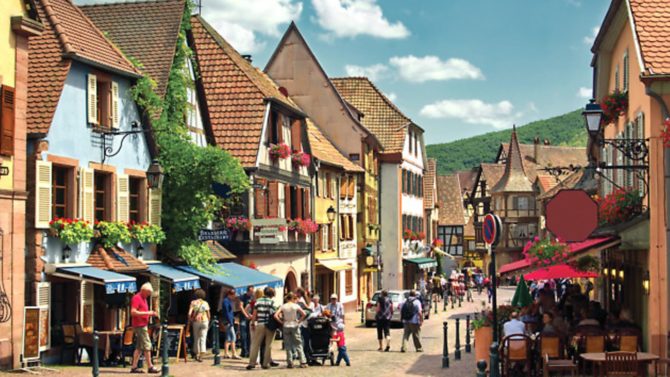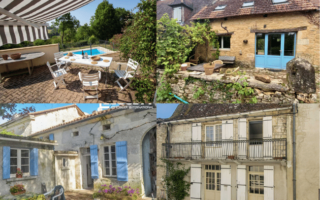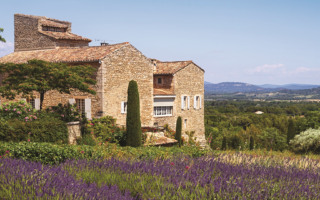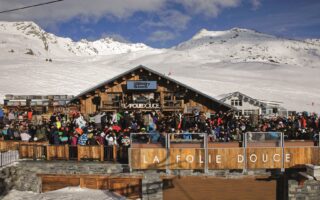Why should I buy a property in France?

With plenty of properties and locations to choose from, good healthcare and education services and a regulated and straightforward property market, it’s easy to see why France is a popular choice with British buyers. Here are 7 reasons you should buy a property in France
1. You have a lot of options in terms of location, including cities, towns, villages, coast and mountains
France is more than twice the size of Britain – nearly 550,000km² compared with Britain’s 230,000km² – and its hexagonal shape means that you do not have to travel hundreds of kilometres to find the loveliest locations. It is the most visited country in the world and its large size offers a wide variety of scenery and climate, from the wide plains north of Paris to the mountainous Alps and Pyrenean regions, the Loire and Rhône valleys and the spectacular Tarn gorges. France also has an extensive coastline with the English Channel and Atlantic stretching from Calais to Bayonne, and the Mediterranean from the Spanish border round to Monaco and Italy. If you have holidayed in various parts of France you know you have a wealth of choice, but research shows that British incomers tend to favour Brittany (for ease of travel), the Atlantic coast and western France (such as Dordogne and Charente), and the Mediterranean (especially Languedoc and the Côte d’Azur). The other major decision is the choice between living in a city or small town, or heading to the countryside or coast. Because France has a wealth of medium to small-sized towns, it is possible to do both, enjoying a rural lifestyle with easy access to a nearby town and its essential services.
2. France has a fairly stable property market with plenty of choice
Compared with the frenzy associated with many other European hotspots that rise and fall in popularity, France enjoys a fairly stable property market and a highly regulated system for buying and selling. There is also a huge range of choice from older village houses, often in need of renovation, to suburban new-builds which are popular with the French. Villas and apartments in coastal and tourist areas are often purchased initially as holiday homes; many are bought as an investment for future retirement. The good news is that second homes tend to come onto the market fairly regularly (average ownership is under 10 years) and there are bargains to be had. Search our property website France Property Shop for the latest properties for sale in France
3. The buying process in France is well regulated and relatively straightforward
The property buying/selling process is relatively straightforward, from negotiating an initial offer, signing a pre-contract (which may include conditional clauses before you finally commit to buying) and various checks and searches before you sign the final contract, the process taking an average of three months from initial offer through to completion. French notaires have a monopoly role in the conveyancing process, and their fees are fixed, as are the taxes they collect on behalf of the state. These can be verified and confirmed before you buy. Estate agents still handle the bulk of property transactions, including rentals, in return for a commission (a percentage of the sale price) and they too are licensed and controlled by the regional authorities, the police and their professional association. You can buy and sell privately, and some notaires are also additionally licensed as estate agents.
4. Taxes aren’t as high as you would expect
Income tax is low and some 45% of French households are currently below the threshold for contributions – this will almost certainly be the case if you are British and retired on a basic state pension. However, the present Hollande government has been shifting several taxes to the regions and local authorities. Indirect taxes such as VAT (at around 20% basic rate) have always tended to be high on virtually all goods and services, and at lower rates for some items like eating out or certain building renovations. There are some tax concessions, such as exemption from property taxes (taxe d’habitation, taxe foncière) once you reach a certain age and/or have a low income. Television services are included in the property taxes but will be automatically free if you do not pay these.
5. France has a good public services, including healthcare and education
The French government imposes a number of charges and taxes in return for a high level of public services – some of which you may not use, such as free education or unemployment benefits. As a permanent resident, you can join the French healthcare system which is comprehensive and highly efficient (same-day medical appointments are routine) but only partly reimbursed by the state. It is reassuring to note that over 30 long-term illnesses, such as serious heart or lung conditions, are paid for in full by the health service. You can choose your own permanent GP with whom you register and, unlike in Britain, you are given copies of your medical records, such as X-rays and test results, which you retain and take with you when visiting a specialist or going into hospital.
6. Public transport is efficient and reasonably priced
One of the inevitable downsides of rural living can be the lack of public transport and your reliance on a car to get about. However, many regions have excellent cheap bus services to outlying villages from many town centres, including the standard €1 bus regardless of distance. For longer journeys, France is at last starting to offer coach services similar to the National Express in Britain. French rail services are clean, fast and comparatively expensive. There is very little difference in cost between first and second class, where this exists, and armed with an older person’s railcard you can shop around for bargains and cheap midweek reductions. Motorway tolls are fairly high but you can still use the quieter network of routes nationales if you are not in a rush. There is also a wide and growing network of car-sharing or car-borrowing websites if you only make the occasional long journey by road.
7. Food is good quality and doesn’t have to be expensive and dining out is affordable
There are continuing discussions about whether food in France costs more than in Britain. The simple answer is: it depends. While Dutch camping cars tend to monopolise the Lidl car park during the high season, there are huge low-cost and discount supermarkets and hypermarkets all across France, including smaller city centre versions, where prices tend to be higher. There are also local markets in virtually every town or village, selling good quality regional produce, including wine. Outside the tourist areas – and by avoiding the high summer season – eating out is less expensive than in Britain, particularly if you opt for smaller bistros and cafés that include a set menu. This explains why many French people enjoy the traditional Sunday family lunch in a restaurant rather than at home.
Written by Peter-Danton de Rouffignac who advises on buying and living in France francemedproperty.blogspot.co.uk
Have we persuaded you to buy a property in France? Read:
The best places to buy a bargain property in France
7 essential criteria for househunting in France
Fin out how the buying system works in France with our buying guides
Share to: Facebook Twitter LinkedIn Email


